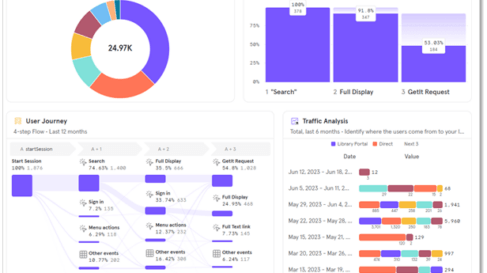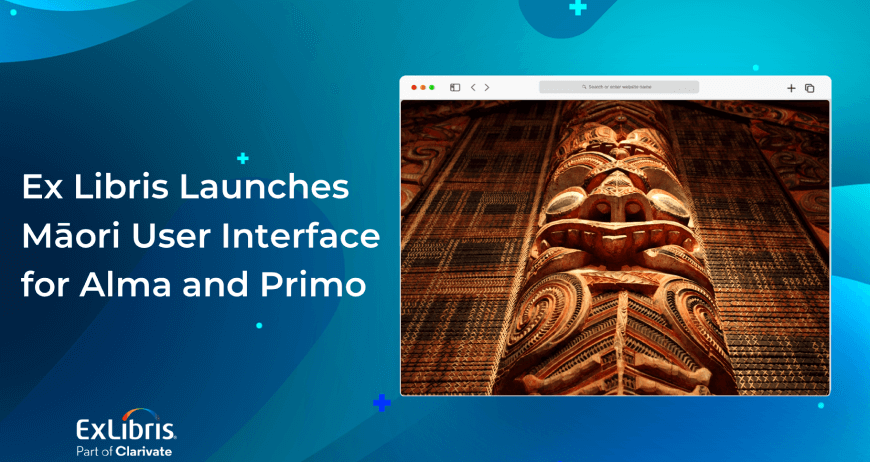The University of Liège has an exemplary Open Access mandate. It inspired a unique collaboration among researchers, university management and library. In this guest post, François Renaville, systems librarian at the ULg Library, explains how. ULg’s institutional repository ORBi is indexed in Primo Central. For more information about institutional repositories in Primo Central click here.
Open access to academic output has been for some years now in the center of scholarly communication at the University of Liège (ULg). In 2007, our Administrative Board adopted the Immediate-Deposit & Optional-Access (IDOA) mandate and took the radical step of making it compulsory for our researchers to add references for all their publications and academic conferences to the institutional repository, backdated to 2002, and to deposit the full electronic version of all the articles that they have published since 2002.
A reference to a scholarly publication has to be placed in the repository as soon as the publication has been accepted by the publisher or as soon as the document is considered to be complete. The obligation to deposit the full text of documents in the repository is relevant only for articles published in journals, but it is in no way exclusive: any other type of publication (book chapters, dissertations, reports, conference presentations, lectures for the general public, posters, course notes…) can be deposited as well. Authors grant open access to the full text of the documents if the publishers’ terms allow them to do so. In cases where embargoes or other restrictions are imposed by a publisher, readers can still request as a print copy from the author directly from the repository.
The reasons behind this policy are simple. Firstly, University management needs to track its output. Bernard Rentier, Rector of the University of Liège, explained in his presentation at the MedOANet European workshop 2013: “If you don’t know what the scientific production of your university is, you have a problem.” But with an institutional repository, the institution can derive statistics for its output. Secondly, researchers are “not supposed to work for no readers,” as Thierry van Cutsem, Research Director FNRS and Adjunct Professor ULg, stated in an interview recorded in the video below. Bernard Rentier explains in his MedOANet presentation that scientists who are satisfied with being able to claim that they have published in a prestigious journal—even though it is only accessible for users in universities who can afford it—are completely missing the point. The point is that you want everybody to read your scientific output, to understand it, and to reuse it.
The ULg Library is playing a key role in supporting the seamless adoption of the IDOA institutional mandate. The library is tasked with the provision of an institutional repository and the support of the institution’s faculty and researchers depositing their publications. In November 2008, the library launched its DSpace-based institutional repository ORBi within the collaborative framework of the Belgian French-speaking university library consortium (BICfB). A few months later, the ULg’s mandate was further advanced by a policy advising that evaluations, appointments, promotions, and budget allocations decisions will take into account only references that are archived in ORBi.
Currently, ORBi contains more than 94,700 references, of which about 57,800 (61%) have a full text (29,900 of them [52%] with an OA full text), and gets more than 2,400 downloads a day (spiders excluded).
Besides the endorsement of the strong institutional policy, other factors played a major role in the success of ORBi. One of them is the user-oriented improvement of the repository: more specifically, we consider that referencing and dissemination is fundamental to reach a real increase of the visibility of the authors’ academic production. On that point, ULg Library’s efforts are very effective. For example, once a reference has been archived in ORBi, it is searchable in Google within an hour of archiving. ORBi is also harvested by other search engines and archives, e.g., Google Scholar, OpenAIRE, Base, Driver, Isidore and, of course, the Primo Central Index.
ULg conducted a number of interviews with researchers, recorded in the video below, confirming that they are well aware of the benefits. In addition to reaching a very large readership very quickly, researchers see their impact sooner. Christian Hanzen, Professor at the Faculty of Veterinary Medicine, states: “When I effectively consult the number of my downloads and I see where they originate from, I realize the impact I can have.”
You might also be interested in

Alma
Content
Primo
Artificial Intelligence
December 18, 2024 |
4 min read
Artificial Intelligence Blog Series: Harnessing Academic AI – Insights from Clarivate

Alma
Leganto
Primo
Artificial Intelligence
October 26, 2024 |
3 min read
Artificial Intelligence Blog Series: Meet Knowledge Assistant, Your Guide to the Ex Libris Knowledge Center

Primo
Artificial Intelligence
Higher Education
Research
September 23, 2024 |
4 min read
Elevate User Engagement with Advanced Analytics: Ex Libris Primo Partners with Mixpanel
Great library experiences start with software
Download whitepaper

Primo
Artificial Intelligence
Higher Education
Research
June 19, 2024 |
4 min read
Artificial Intelligence Blog Series: Meet Primo Research Assistant

Primo
January 30, 2024 |
3 min read
Revolutionizing Library Discovery: The Journey to a New UX for Primo Discovery

Primo
Artificial Intelligence
November 23, 2023 |
4 min read
Artificial Intelligence Blog Series: Prioritizing Conversational Discovery at Ex Libris

Alma
Leganto
Primo
Rapido
October 29, 2023 |
4 min read
Why academic libraries are modernizing the user experience

Alma
Primo
July 28, 2022 |
3 min read
Ex Libris Launches Māori User Interface for Alma and Primo

